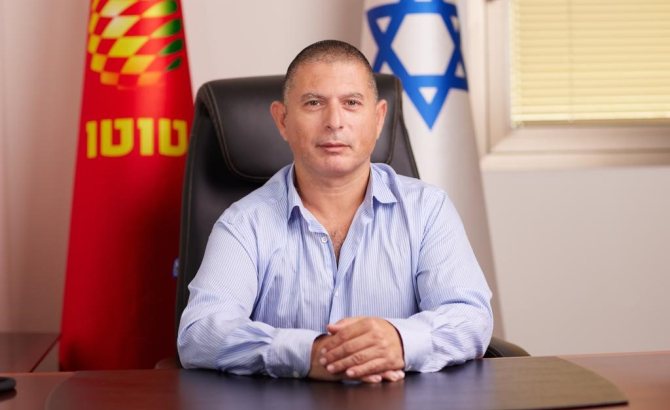
Toto (The Israel Sports Betting Board) achieves fifth RG certification
Committed to addressing illegal gambling and related criminal activities while minimising any potential harm on society, EL has developed a Standard that aims to promote the adoption of best practices across the EL membership: the EL Responsible Gaming Certification.
EL Member Toto (The Israel Sports Betting Board) recently became Responsible Gaming certified for the fifth time. This is an excellent achievement which emphasises the importance of the core lottery value of responsibility.

In this interview, Meir Bardugo, CEO of Toto (The Israel Sports Betting Board) tells us all about the growing activities of the lottery in the field of responsible gaming and the developments over the past years since its first EL Responsible Gaming Certification.
Your lottery has been certified for the fifth time. How did the process differ from previous certifications? What are the biggest lessons learnt?
Being certified for the fifth time is quite an achievement and a wonderful challenge to accomplish. Since we are already familiar with the requirements and have a very strict responsible gaming policy, the certification process went smoothly. Nevertheless, I think that each certification provides an opportunity for improvement, and our ambition is to make the most of it to improve.
I think that if at the beginning of the journey, during the first certification, we were both apprehensive of excessive internal regulations and concerned of the effect the process of certification might have on our business goals, etc., then along the way, and especially in the last process, we come to realize that certification helps us achieve our business goals, it improves us, and this is perhaps the main lesson we learned as an organization.
Could you tell us about your progress since the first certification? What has changed and how did you grow and learn in the past 12 years?
We have definitely come a long way for the past 12 years. In my view, the most important impact of the certification with all its requirements on the ISBB is that it facilitated creation of a structured framework of work processes, work procedures as well as self-examination processes that we apply and implement. I feel that the main thing that has changed along the way was the increasing awareness and active involvement of all ISBB departments and employees. Responsible Gaming is no longer associated with one person who happens to be in charge of it, but rather is perceived as an integral part of the entire organization's activities, when a wide spectrum of practices and courses of development are scrutinized through the prism of Responsible Gaming. This kind of approach has had a tremendous impact on the ISBB: on the decisions we make and on the way we implement them.
Reaching the fifth certification is a huge achievement. Did you set yourself specific goals this time and did you reach your expected results?
An excellent question! At the start-up meeting of the certification process when I met with the team that coordinates the field of Responsible Gaming in the ISBB, I told them that I was confident that we would meet the certification requirements - which by no means is a very important goal in itself, something we have been working to achieve and once achieved, maintain, all these years. But this was not my only goal: as I mentioned earlier, I really view certification as an opportunity to improve and wanted to make the most of it. I asked that the process encompass as many elements of the organization as possible, and that as many employees and managers as possible be exposed to it, aiming to have an impact on each and every staff member in order to create awareness and a sense of pride in the certification process and our position in it.
What was the most difficult part of the fifth certification and how did you overcome it?
To be honest, there were no real difficulties. I think that the main difficulty lies in your ability not to make the process routine, to take it seriously not only during certification itself but on a daily basis when routine work is done, make Responsible Gaming a part of your daily practices of decision making, and treat it every time as if you were going through it for the first time. This is important mainly from an internal organizational point of view. Since most of the employees and managers believe that we are doing a good job as far as Responsible Gaming and customer protection are concerned, it is important to engage them to maintain the level of attention and vigilance to the process, so that nothing is taking for granted or as if it is self-evident. I believe that the fact that we change from time to time an external accounting firm that accompanies the process helps a lot because in spite of the fact that the requirements are the same, each firm helps us view them in a different angle.
What was the added value for your lottery in being certified for a fifth time? For example, how does it influence your daily business - retail outlets, product development, relation with stakeholders?
Beyond raising the awareness of the responsible gaming in all employees, managers and board members, the certification process causes us to repeatedly refine existing work processes and procedures. For example, following the latest certification process, we updated our marketing and advertising procedures, refined our control processes over POS owners in the context of banning sales to minors, and more.
What advice do you have for EL Members concerning their (re)-certification process?
I would definitely recommend to all members to go through the Certification process. For those who are new to it and are going through it for the first time, this will help them in building the organizational frameworks to deal with customer protection issues, it will harness the entire organization and gradually become part of the organizational DNA; for organizations that have already undergone at least one certification, this will greatly contribute to improving existing workflows and keeping the issue in organizational awareness high. My main advice - take the process seriously, beyond the fact that this is our public duty, it will help you achieve your long-term business goals and do it in a responsible way.






